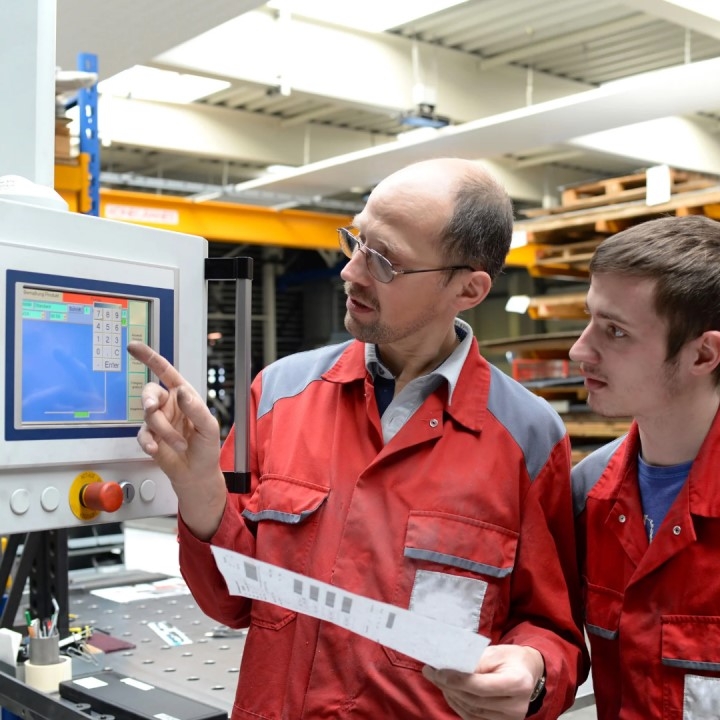THE IMPORTANCE OF TECHNOLOGICAL INSTITUTES IN EMPOWERING THE YOUTHS FOR AUTOMATION IN UNDERDEVELOPED ECONOMIES

The power of Automation has proved to be a huge force of transformation in several industries and economies, and underdeveloped economies are not to be left out in the process.
As the era of manual labor is gradually being replaced by automation, to empower youths with the skills and crafts needed to excel in this new era is of huge significance.
Technological institutes and organizations demonstrate vital roles in making sure education and training in technologies and innovations are provided, reducing the gap between education and industry, and establishing a skilled workforce.
In this article we will be shedding light on the significance of technological institutions and organizations in empowering youths for automation in underdeveloped economies.
But before we dive straight into that, firstly we need to explore some obstacles and challenges faced by underdeveloped economies.
CHALLENGES IN UNDERDEVELOPED ECONOMIES

Undeveloped economies face significant challenges, many of which have delayed and halted the development of economies. Some of these challenges includes:
- Minimized Access To Education And Technology: In underdeveloped economies limited access to education and technology has hindered opportunities for individuals to acquire knowledge and digital literacy, due to limited access to quality education, high illiteracy rate and limited access to technology.
- Brain Drain : The migration of competent and skilled technological individuals to urban or developed nations, where their skills and innovations are highly useful and cherished. This has reduced the number of skilled and educated workers in underdeveloped economies.
- Lack Of Skilled Workforce: Lack of empowered or skilled workforce is a significant challenge in underdeveloped economies, as they lack the skill to sustain and harness the power of modern technologies such as AI, ML, robotics, etc.
These challenges hinder economic growth and development making it difficult for youths to find employment and contribute to their communities.
ROLE OF TECHNOLOGICAL INSTITUTES

Technological institutes provide education, training and knowledge acquisition in automation technologies, such as Artificial Intelligence, robotics and mechatronics.
Hands-on training , practical experience, and theoretical knowledge are provided by these institutes, thereby empowering youths with the skills needed to excel in the automation industry.
By ensuring access to education and training technological institutes help build a skilled workforce, there by narrowing the gap between education and industry.
BENEFITS OF TECHNOLOGICAL INSTITUTES

Technological institutes offer numerous benefits including,
- Ensuring education and in-depth training in advanced technology is generally easily accessible.
- Developing a highly skilled workforce and addressing the labor market demands.
- Applauding innovation, economic stability and entrepreneurship.
- Narrowing the distance between education and industry, fostering collaboration.
- Providing students with the essential or necessary skills for jobs in high- demanding fields like AI, data science and cyber security.
- Providing in-depth training, practical experience and theoretical knowledge.
- Encouraging problem-solving, innovation, creativity and critical thinking.
- Playing a vital role in the acceleration and growth of the national economy and global competitiveness.
- Offering flexible learning options, including online and part-time programs.
- Establishing a pool of talent for industries to draw from.
Technological institutes demonstrate a significant role in growing skilled workforces, driving innovation and promoting economic growth, making them essential for underdeveloped nations seeking to expand their technological abilities.
CONCLUSION
Technological institutes are the catalysts for transformation in underdeveloped economies, empowering youths to drive the automation revolution.
By equipping them with cutting-edge skills and knowledge, these institutes ignite a spark of innovation and entrepreneurship, bridging the gap between education and industry.
Investing in these institutes is crucial to building a skilled workforce, fueling economic growth, and unlocking the full potential of automation.
As we look to the future, we must ask: What lies ahead for underdeveloped economies if we fail to empower their youths with the skills to thrive in an automated world?







Leave a Reply